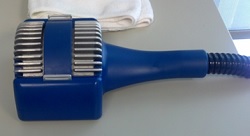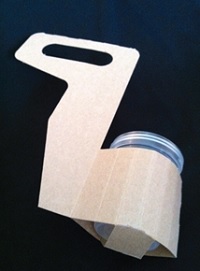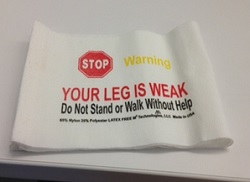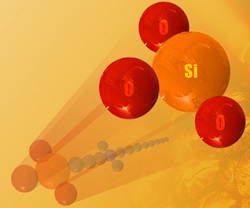 Med tech incubator Edison Nation Medical is always looking for great ideas in med tech that can be commercialized. Based in Charlotte, NC, it invites entrepreneurs to submit their healthcare innovation for evaluation via its online portal. Promising early-stage devices receive the incubator's support, resources and funding to improve their chances of achieving clinical and financial success.
Med tech incubator Edison Nation Medical is always looking for great ideas in med tech that can be commercialized. Based in Charlotte, NC, it invites entrepreneurs to submit their healthcare innovation for evaluation via its online portal. Promising early-stage devices receive the incubator's support, resources and funding to improve their chances of achieving clinical and financial success.
"We receive innovations at all stages of development from sketches on backs of napkins to fully developed, FDA-approved innovations," Edison Nation Medical President Robert Grajewski told FierceMedicalDevices.
The institution gave FierceMedicalDevices details about the medical devices in its pipeline that are in need of a licensing partner. They range from a simple wand for collecting urine specimens to an asthma inhaler that can be conformed to fit in your wallet.
One product supported by Edison, The GuardianOR waste removal system, has recently been licensed to a new company affiliated with the product's inventor, Bryan Guthrie. Edison said this invention came about because the former Stryker ($SYK) medical device salesman heard many complaints about valuable medical devices being inadvertently disposed of following surgery.
The new company estimates that the lost surgical instruments are worth $50,000 to $60,000 per operating room per year, or $2 billion in North American hospitals alone. The specialized trash can detects metal and alerts staff when an instrument passes through its waste receptacle.
Read on to see what other devices are out there, waiting to be brought to market. -- Varun Saxena (email | Twitter)
|
Ultra-Portable Asthma Inhaler |
|
This credit-card-sized inhaler can fit in your wallet. That means the chances of not having an inhaler during an asthma attack are slim. Edison says the inhaler stores the pressurized medication differently than conventional counterparts and has a smaller meter valve system. The mouthpiece can be configured in three steps listed on the device itself. The inhaler contains three doses of medication. Edison says another benefit is that because the inhaler is supposed to be disposed of after each use, the need to keep track of dose count or the device's shelf life is eliminated. Read more about the inhaler from Edison Nation Medical. |
 |
|
Extracorporeal Magnetic Innervation (ExMI) |
|
This device uses magnetic induction to treat incontinence and muscle atrophy. It was invented by a urologist in Germany and further perfected by a chiropractor in the United States. Edison says the technology is noninvasive, painless and has no known side effects. Other positives include the promise of CMS reimbursement and a limited need for practitioner training. The product's patent is pending. |
 |
|
Fluorescent Instrument Recovery |
|
This innovation is a specialized form of yarn that can be applied to devices so that they emit light, even when soaked in blood inside a patient's body. The goal is to make instruments more efficient and ensure that instruments are not left inside the body following surgery. USA Today estimates that between 4,500 and 6,000 patients leave the hospital every year with a foreign object left in their body, most commonly a surgical sponge. But fewer than 15% of hospitals use sponges with electronic tracking systems, probably because they are more expensive. The product's patent is pending. |
 |
|
Wee Wand |
|
Wee wand was invented by a nurse who wanted a safer and more hygienic way to collect urine specimens. The low-cost, patented device extends a woman's reach so she doesn't have to place her hands inside a toilet bowl. |
 |
|
Diaper/Nonwoven Compression |
|
Edison is licensing this vacuum packaging technology for diapers and bandages. It enables easier storage of adult and baby diapers, allowing an incontinent adult to carry a diaper in his pocket. The patented product was invented by someone who desired an easier and more compact way to ship and store both baby and adult diapers. |
 |
|
Patient Warning System |
|
This simple leg wrap contains a warning reminding patients that their leg is weak, and they should not stand up or walk without help. The goal is to prevent falls and injuries among postoperative patients. Edison says patients are often fooled in the first 48 hours after surgery, when the anesthesia and pain medication are still in their system. Even though they feel good, they are often still unable to walk. |
 |
|
Vital Timer |
|
IV lines should be changed every 72 hours to reduce the risk of infection, but keeping track of their age is a challenge. The paper clip-sized vital timer blinks when the desired amount of time has elapsed. The device adheres to a patient's headboard. It was invented by Dr. James Selevan, who worried that his IV lines weren't being changed in time as he recovered from a heart attack. The product's patent is pending. Read more about the vital timer from Edison Nation Medical. |
 |
|
Goldshield Antimicrobial Agent |
|
This patented water-based antimicrobial agent inhibits bacteria for up to 30 days once applied, Edison says. The Centers for Medicare & Medicaid Services is penalizing hospitals that do a poor job of preventing hospital-acquired conditions, meaning innovations like this one are in high demand. |
 |
|
Kairaderm Wound Care Wrap |
|
This wrap containing wound dressings can be self-applied by a patient, whereas traditional dressings require application by a caregiver. To apply a new dressing using the wound care wrap, a patient must unwrap the device, put a fresh medical pad in its pocket, and wrap it up again, Edison says. The patented, low-cost product can go around the arm, leg or torso. It can be made disposable or washable. |
 |
 Med tech incubator Edison Nation Medical is always looking for great ideas in med tech that can be commercialized. Based in Charlotte, NC, it invites entrepreneurs to submit their healthcare innovation for evaluation via its online portal. Promising early-stage devices receive the incubator's support, resources and funding to improve their chances of achieving clinical and financial success.
Med tech incubator Edison Nation Medical is always looking for great ideas in med tech that can be commercialized. Based in Charlotte, NC, it invites entrepreneurs to submit their healthcare innovation for evaluation via its online portal. Promising early-stage devices receive the incubator's support, resources and funding to improve their chances of achieving clinical and financial success.







